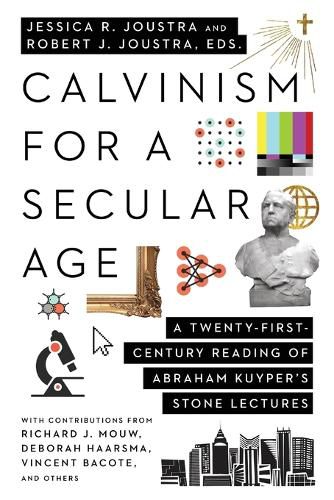Readings Newsletter
Become a Readings Member to make your shopping experience even easier.
Sign in or sign up for free!
You’re not far away from qualifying for FREE standard shipping within Australia
You’ve qualified for FREE standard shipping within Australia
The cart is loading…






Abraham Kuyper, the Dutch Neo-Calvinist theologian, pastor, and politician, was well-known for having declared that there is not a square inch of human existence over which Jesus Christ is not its sovereign Lord. This principle is perhaps best reflected in Kuyper’s writings on Calvinism originally delivered as the Stone Lectures in 1898 at Princeton Theological Seminary. These lectures reflecting on the role of the Christian faith in a variety of social spheres-including religion, politics, science, and art-have become a touchstone for contemporary Reformed theology. How might the lectures continue to inform the church’s calling in a secular age? In this volume, Jessica Joustra and Robert Joustra bring together theologians, historians, scientists, and others to revisit Kuyper’s original lectures and to critically consider both his ongoing importance and his complex legacy for today.
$9.00 standard shipping within Australia
FREE standard shipping within Australia for orders over $100.00
Express & International shipping calculated at checkout
Abraham Kuyper, the Dutch Neo-Calvinist theologian, pastor, and politician, was well-known for having declared that there is not a square inch of human existence over which Jesus Christ is not its sovereign Lord. This principle is perhaps best reflected in Kuyper’s writings on Calvinism originally delivered as the Stone Lectures in 1898 at Princeton Theological Seminary. These lectures reflecting on the role of the Christian faith in a variety of social spheres-including religion, politics, science, and art-have become a touchstone for contemporary Reformed theology. How might the lectures continue to inform the church’s calling in a secular age? In this volume, Jessica Joustra and Robert Joustra bring together theologians, historians, scientists, and others to revisit Kuyper’s original lectures and to critically consider both his ongoing importance and his complex legacy for today.